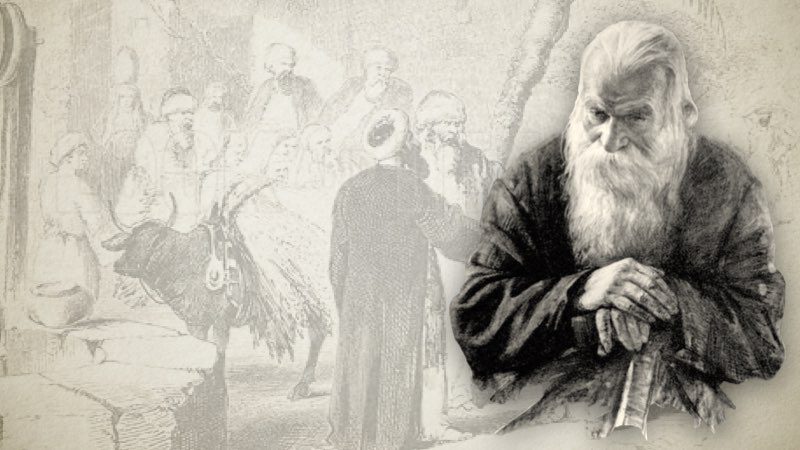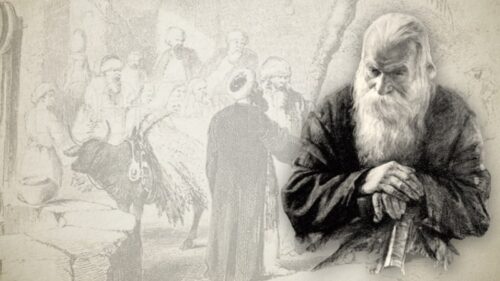-
‘Particular Baptist Church’ Polity And Organization During The Eighteenth Century
An Extract From George Ella’s Book, “John Gill And The Cause Of God And Truth”, Pages 54,55. A Printed Copy Of This Book May Be Obtained From Go Publications (£13/$16). The records of Gill's ordination service have provided church historians with a complete picture of how the Particular Baptists were organized at the beginning of the eighteenth century. It is clear that they only elected one elder per church, who was also their pastor, who then presided over a number of deacons.[1] Though many pastors were present at Gill’s ordination ceremony, they were referred to by Crosby in his records as 'elders'. This might indicate that the Baptists had some idea of a church universal with elders belonging to it which were not members of…
-
Churches Should Appoint Elders?
Churches are among the only communities in the world which view 'elders' as an appointed or elected office. The universal and historically recognized meaning of the term refers to unofficial leaders of a community, distinguished by their age, wisdom, wealth and influence. They are not appointed or elected to an office of eldership. Rather, they assume an informal role of leadership when the younger members of the community acknowledge them as elders. Indeed, this is precisely how the term is used in the scriptures. The appointment or election of persons to an eldership is based squarely on ecclesiastical edicts and traditions, which are read into the scriptures. Over the last sixty years, many Baptist churches have adopted these traditions. Regardless of the Reformed Baptists claiming…
-
Preface
The subject of eldership in Baptist circles has been one of the most misunderstood issues of recent years, with the result that it has become fashionable and even considered orthodox for churches to supplement or replace a single pastor with a team of ‘elders’. I contend this mode of governance is unscriptural, impractical and unconventional. This pamphlet is designed to argue the case why Baptist churches should retain their historic practice of appointing one bishop/pastor, assisted by a group of deacons. I have completed a comprehensive textbook on this subject, which is under review for publication. In the interim, this pamphlet is an abridged preview of the larger forthcoming work, and I extend special thanks to Adam Nixon who encouraged the pamphlet’s preparation, and to…
-
An Introduction To Eldership
It is commonplace to hear it staunchly affirmed by preachers that the term elder is one and the same with bishop and pastor; that the term is usually used in the plural, indicating the early churches were overseen by a plurality of elders. Hence, it is argued, if churches today are to reflect the most Scriptural form of governance, then elders must be appointed as overseers. • Some believe there is parity among the elders, wherein all share equal authority as teachers/rulers; whereas others believe there is a difference between the elders, wherein some are set apart with a gift for teaching and others with a gift for ruling. • Some will only use the title Elder to identify the office, whereas others will also…
-
1. Elders Are Unofficial Leaders Never Elected Or Appointed To An Office
The Biblical term ‘elder’ was based upon the traditional cultural understanding of what the word universally meant. For in every culture and community, elders are the patriarchs and matriarchs of local and extended family units. These elders are never elected or appointed to an office—they merely assume this unofficial role of leadership by virtue of age, wisdom and influence. An example of continuity in the practice and use of the term surviving with its meaning intact from earliest times until today is cited with perfect clarity by S. M. Stiegelbauer in her paper on the First Nation Elders, published in The Canadian Journal of Native Studies.[1] With reference to the Inuit people who today still inhabit the Arctic regions which include Canada, researcher Stiegelbauer writes:…
-
2. The Terms Elder, Bishop And Pastor Are Not Interchangeable
When the term elder is used within Christian circles, it conjures up ideas of ecclesiastical clergy, either elected to office by the congregation, or appointed to office by the denomination. In fact, it is only within Christian churches that the term elder is made to mean something other than persons honored in virtue of their age, wisdom and influence. This irregular interpretation is rooted in a flawed hermeneutic of several biblical texts which refer to elders. It is assumed, because a few scripture passages use the term elder when identifying a bishop/pastor, that therefore, most (if not all) references to elders in the early churches must be bishops/pastors. The absurdity of this presupposition is comparable to one who boasts that all disciples must be apostles,…







